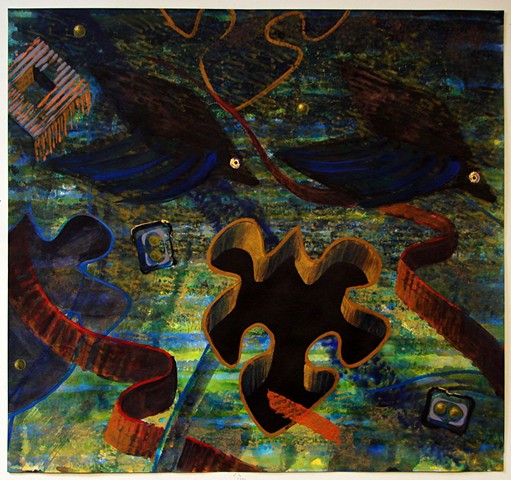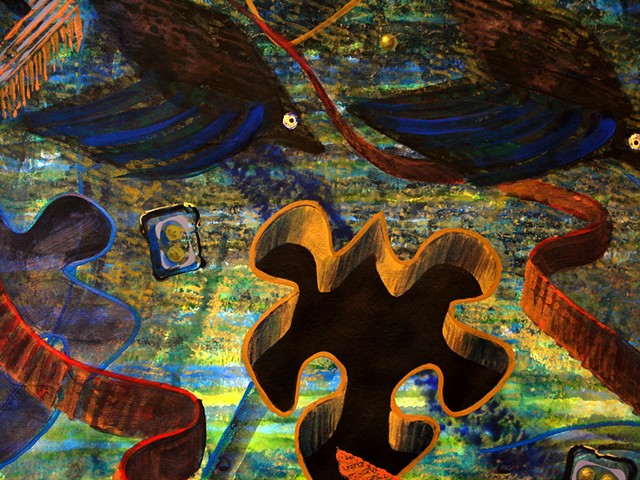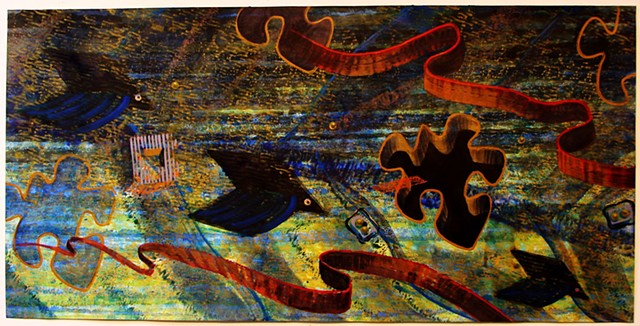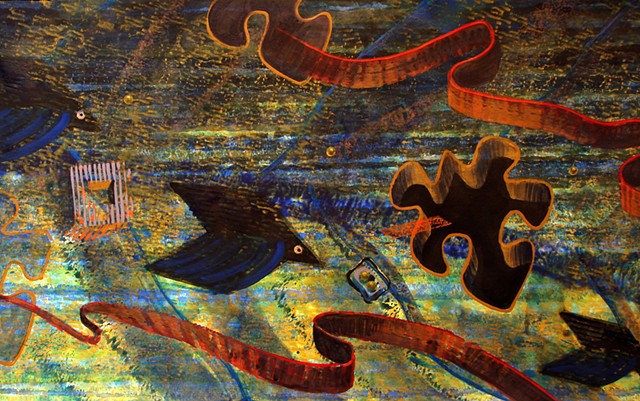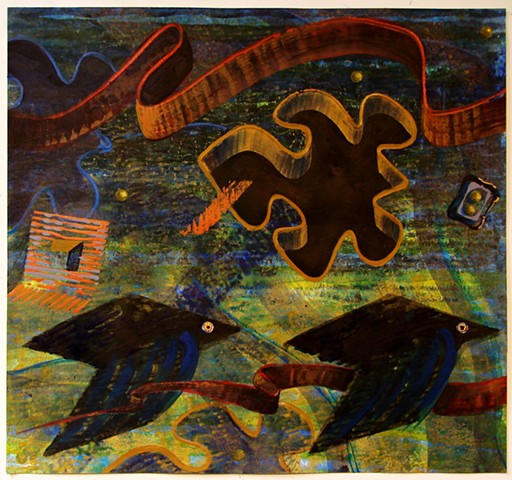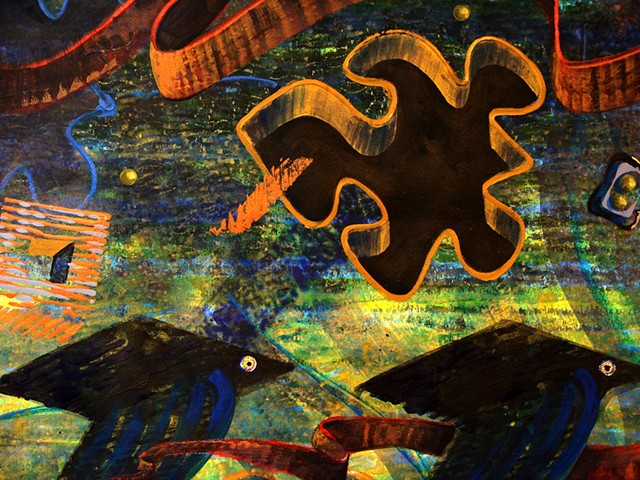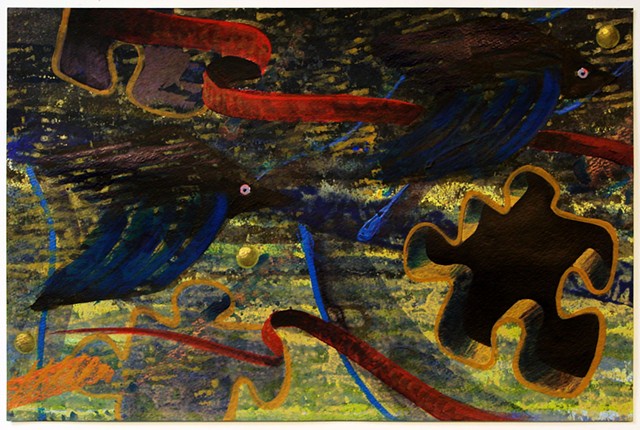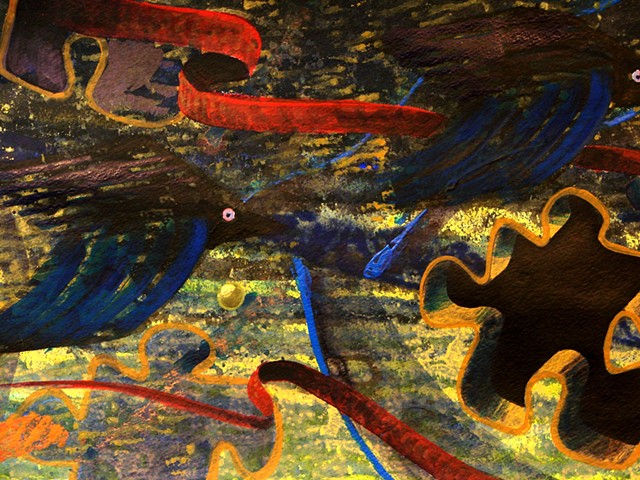You Follow Yourself
touring the world
tilling a small field
to its limits
- Basho
I used to listen to rebroadcasts of Alan Watts on Sundays while I swept my studio-loft in Oakland back in the 1990’s. One of many questions that continue to circulate in my mind from those Watts talks is: “If it doesn’t come from you where does it come from?”. Despite his Anglican/Zen practices, Watts was always one to proclaim the sensory life and in this case the challenge is to recognize virtually everything that we think about or claim understanding of has its origins in our senses and the processing of that receptivity.
Thinking about this a few nights ago while sitting on the deck watching small whirling constellations of bugs in the light of the setting sun, I wondered whether in fact throughout our own lifespan we are essentially following ourselves. Since we receive and process the world individually, even our education, social and political stances are all filtered judgements that, while we might attempt to share them and make a case for their value and importance, are essentially unique to us and we follow them in our own way.
Science might like to disclaim that all objectivity is really subjective, but I believe that despite the hegemonies of science and religion in human culture we are still the product of our own processing since we can always counter with the question Watts asked: “If it doesn’t come from you where does it come from?”. Perhaps all of this assumes more individual freedom than most people ever have access to. There is probably an amount of modern privilege that is a prerequisite to even beginning to warrant the idea that we can follow ourselves. But perhaps this privilege is something akin to innate ability and so by degrees we are all endowed with at least the potential to think that we might indeed only follow ourselves on the path that is our lifetime.
Basho’s haiku above alludes to the degrees that range across human experience while at the same time sharing a ‘limit’. Perhaps, we need to recognize the fact that our limited sphere of influence is in reality the allotment of a different kind of wealth for each of us to possess. Since our so-called personalities are often credited with the directions we might pursue in life, and even despite the fate of our birth – the circumstances of place, class, family, etc. – the way we tune our senses towards unique ways of taking in the world around us becomes the practice of ‘us following ourselves’. So, whether it’s “touring the world” or within the limit of our “small field” we essentially follow ourselves ‘all the live-long day’.
